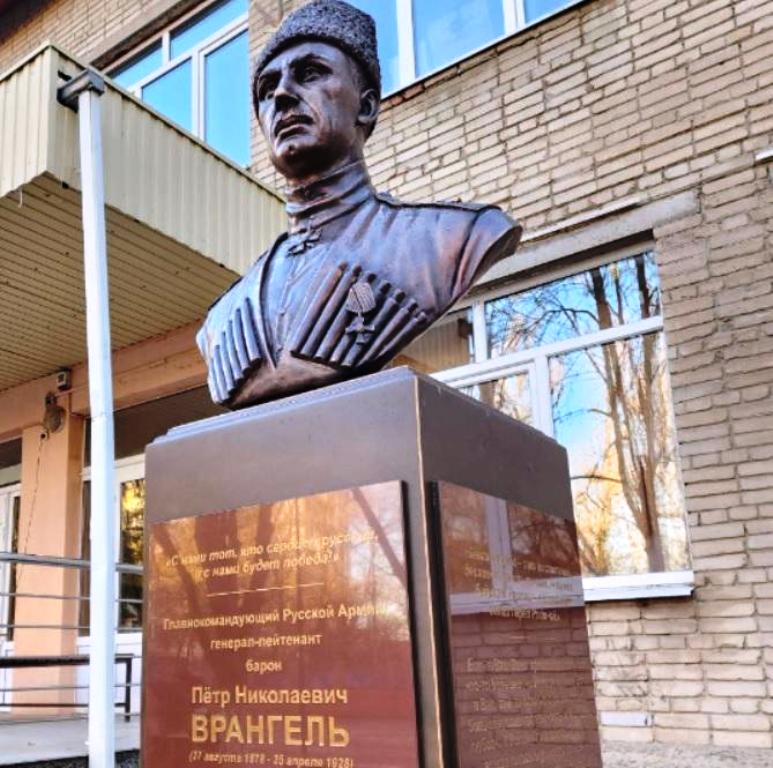On 7th November 2023, a new monument to Baron Pyotr Nikolaevich Wrangel (1878-1928) was installed at the entrance to the Nicholas II Don Cadet Corps in Rostov-on-Don,
Born on 27th August [O.S. 15th August] 1878, Wrangel served as a Russian officer in the Imperial Russian Army. He served in both the Russo-Japanese War and World War One. During the later stages of the Russian Civil War, he was commanding general of the anti-Bolshevik White Army in Southern Russia.
After defeats by the Bolsheviks in which he lost half his standing army and, facing defeat in Northern Tavria and in the Crimea, Wrangel organised a mass evacuation on the shores of the Black Sea. Wrangel gave every officer, soldier, and civilian the choice to evacuate and go with him into the unknown, or to remain in Russia and face the wrath of the Red Army. Wrangel evacuated the White forces from the Crimea in 1920; the remnants of the Russian Imperial Navy became known as Wrangel’s fleet. The last military and civilian personnel left Russia with Wrangel on board the ‘General Kornilov’ on 14th November 1920.
In 1922, he moved to the Kingdom of Yugoslavia as the head of all White Russian refugees. He arguably was considered the most prominent of all White émigrés. In September 1927, Wrangel and his family emigrated, settling in Brussels, Belgium, where he worked as a mining engineer.
Wrangel died suddenly on 25th April 1928, after a sudden infection with tuberculosis. His family, however, believed that he had been poisoned by his butler’s brother, who briefly lived in the household in Brussels and was allegedly a Soviet agent.
He was buried in Brussels. More than a year later, his remains were transported to Belgrade. On 6th October 1929, in a formal public ceremony, his body was reinterred in the Church of the Holy Trinity, Belgrade, the Russian church, according to his wishes.


